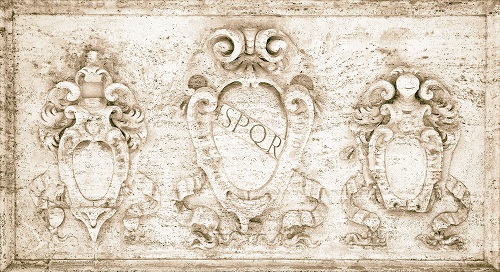Liberty Matters
Liberal Learning and Dialectical Inquiry

In her response to Montás, I am pleased to see Dr. Prather make the connection between classical texts, wisdom, and self-knowledge in a way that emphasizes how the careful reading of such texts can draw us closer together in ways that markers of gender, class, or race, cannot. It is precisely because classical texts transcend the boundaries of time, place, and circumstance that so many of us who do not “see ourselves” in their authors according to such identifiable markers are nevertheless able to relate to their works so deeply. I see myself in the works of St. Augustine, Aristotle, and Aquinas, despite their culture-bound views about women as intellectually and morally inferior.
While the emphasis on classical texts is critically important, a truly liberal education cannot and should not be reduced to the study of a canon. Liberal learning must be undertaken in the right spirit—with passionate love for wisdom as the common good of those who study together for its sake. The search for wisdom and self-knowledge will never go well as an isolated endeavor—community is necessarily its proper context. In addition to the proper objects of study, it requires dialectical exchange.
In order to understand what dialectical exchange is, we can start with the nature of dialectical questions: they are questions that leave us free to take either side of a contradiction. It is the very nature of a dialectical question that it calls forth disagreement and exchange of arguments. If I ask my students what time it is, they may give different replies, but I’m just looking for the correct answer, not a discussion. But consider the dialectical question: Is time linear? This sort of question assumes that time might not be linear, that we need to consider the arguments on both sides if we are to truly understand our answer. A dialectical question is the sort where we do not assume we know the answer in advance, and that the contrary case will surely have merits we need to address. We need a dialectical exchange of argument and counter-argument if we are to make progress on dialectical questions taken up in classical texts. Dialectical exchange takes up dialectical questions in earnest. Dialectical exchange is a distinctive way of searching for the truth—by way of looking critically at arguments for both sides, with an openness to the veracity of either. We cannot do it well without knowing what constitutes good and bad thinking and argument generally, which are good habits of mind, but we also cannot do it well without certain habits of moral character. Communities of liberal learners only function well when each participant feels that their contributions are respected, heard, and understood. Therefore, dialectical exchange requires intellectual and moral virtues, among them: humility, civility, patience, generosity, and studiousness. If we are serious about liberal learning for its own sake—as we should be—we must be serious about virtue in the service of dialectical exchange as we approach classical texts. If we take this connection seriously, we will understand Montás’s plea for liberal learning outside the confines of disciplinary bounds more clearly and deeply.
Copyright and Fair Use Statement
“Liberty Matters” is the copyright of Liberty Fund, Inc. This material is put on line to further the educational goals of Liberty Fund, Inc. These essays and responses may be quoted and otherwise used under “fair use” provisions for educational and academic purposes. To reprint these essays in course booklets requires the prior permission of Liberty Fund, Inc. Please contact oll@libertyfund.org if you have any questions.